Are you in the market for a new copper kitchen sink but unsure about which gauge to choose? You may have come across options for 16 gauge and 14 gauge sinks, but what exactly do these numbers mean and which one is right for you? Let's dive into the differences between 16 gauge and 14 gauge copper kitchen sinks to help you make an informed decision.16 gauge vs 14 gauge copper kitchen sink
The gauge of a sink refers to the thickness of the metal used to make it. The lower the number, the thicker the metal. In the case of copper kitchen sinks, 16 gauge means that the sink is made from copper that is 0.064 inches thick, while 14 gauge means the sink is made from copper that is 0.075 inches thick. This may not seem like a significant difference, but it can impact the durability and cost of the sink.What is the difference between 16 gauge and 14 gauge copper kitchen sinks?
The main advantage of a 16 gauge copper kitchen sink is its cost. Being slightly thinner, it is less expensive to produce, making it a more affordable option for homeowners on a budget. However, this also means that it may dent or scratch more easily than a 14 gauge sink. On the other hand, a 14 gauge copper sink is thicker and sturdier, making it more resistant to dents and scratches. However, this thicker metal also makes it pricier.Pros and cons of 16 gauge and 14 gauge copper kitchen sinks
If you're looking for a sink that can withstand heavy use and last for years to come, a 14 gauge copper sink may be the better choice. Its thicker metal makes it more durable and less prone to damage from heavy pots and pans. However, with proper care, a 16 gauge sink can also have a long lifespan.Comparing the durability of 16 gauge and 14 gauge copper kitchen sinks
Ultimately, the decision between a 16 gauge and 14 gauge copper kitchen sink comes down to your personal preferences and budget. If you're on a tight budget or don't mind being extra careful with your sink, a 16 gauge sink can be a suitable option. However, if you want a more durable sink and are willing to invest in it, a 14 gauge sink may be a better fit.Which is better: 16 gauge or 14 gauge copper kitchen sink?
As mentioned before, the thickness of the metal used in the sink impacts its cost. On average, a 16 gauge copper kitchen sink will cost less than a 14 gauge sink. However, prices can vary depending on the size, design, and brand of the sink. It's essential to consider your budget and the features you want in a sink when making your decision.Cost comparison: 16 gauge vs 14 gauge copper kitchen sinks
The installation process for both 16 gauge and 14 gauge copper kitchen sinks is similar. However, due to the thicker metal of a 14 gauge sink, it may be slightly heavier and require additional support during installation. It's best to consult a professional for proper installation to ensure your sink is secure and functional.Installation considerations for 16 gauge and 14 gauge copper kitchen sinks
Caring for a copper kitchen sink is relatively easy, regardless of the gauge. Regularly cleaning with a mild soap and water will help prevent stains and maintain its shine. Avoid using abrasive cleaners or harsh chemicals, as they can damage the sink's finish. Additionally, it's essential to dry the sink after each use to prevent water spots and mineral buildup.Maintenance tips for 16 gauge and 14 gauge copper kitchen sinks
Copper kitchen sinks are not only functional but also aesthetically pleasing. Both 16 gauge and 14 gauge sinks are available in a variety of designs, including farmhouse, drop-in, and undermount sinks. You can also choose from a natural copper finish or opt for a patina finish for a more rustic look. With so many options, you're sure to find a copper sink that fits your kitchen's style.Design options for 16 gauge and 14 gauge copper kitchen sinks
Don't just take our word for it - see what other customers have to say about their experiences with 16 gauge and 14 gauge copper kitchen sinks. Reading reviews can give you valuable insights into the durability, maintenance, and overall satisfaction of other homeowners who have purchased and installed these sinks in their kitchens. In conclusion, both 16 gauge and 14 gauge copper kitchen sinks have their advantages and disadvantages. Consider your budget, lifestyle, and design preferences when making your decision. Whichever gauge you choose, a copper kitchen sink is a beautiful and functional addition to any home.Customer reviews of 16 gauge and 14 gauge copper kitchen sinks
The Benefits of Choosing a 16 Gauge Copper Kitchen Sink

Why Copper Sinks Are an Excellent Choice for Your Kitchen
 When it comes to choosing the perfect kitchen sink for your home, there are many options to consider. One popular choice among homeowners is copper sinks. Not only do they add a touch of elegance and uniqueness to any kitchen, but they also offer a multitude of practical benefits. In this article, we will focus on the main keyword "16 ga vs 14 ga copper kitchen sink" and specifically dive into why a 16 gauge copper kitchen sink may be the best option for your kitchen.
When it comes to choosing the perfect kitchen sink for your home, there are many options to consider. One popular choice among homeowners is copper sinks. Not only do they add a touch of elegance and uniqueness to any kitchen, but they also offer a multitude of practical benefits. In this article, we will focus on the main keyword "16 ga vs 14 ga copper kitchen sink" and specifically dive into why a 16 gauge copper kitchen sink may be the best option for your kitchen.
The Difference Between 16 Gauge and 14 Gauge Copper Sinks
 Before we dive into the benefits of choosing a 16 gauge copper kitchen sink, let's first understand the difference between 16 gauge and 14 gauge copper sinks. Gauge refers to the thickness of the metal used to make the sink. The lower the gauge number, the thicker the metal. In this case, a 16 gauge copper sink is slightly thicker than a 14 gauge sink. This may not seem like a significant difference, but it can make a big impact on the overall quality and durability of the sink.
Before we dive into the benefits of choosing a 16 gauge copper kitchen sink, let's first understand the difference between 16 gauge and 14 gauge copper sinks. Gauge refers to the thickness of the metal used to make the sink. The lower the gauge number, the thicker the metal. In this case, a 16 gauge copper sink is slightly thicker than a 14 gauge sink. This may not seem like a significant difference, but it can make a big impact on the overall quality and durability of the sink.
Strength and Durability
:max_bytes(150000):strip_icc()/copper-sink-wood-plank-ceiling-5990d696b501e800124c96f2.jpg) One of the main benefits of choosing a 16 gauge copper kitchen sink is its strength and durability. The thicker metal used in a 16 gauge sink makes it more resistant to dents, scratches, and other types of damage. This is especially important in a high-traffic area like the kitchen, where the sink is constantly being used. A 16 gauge copper sink is less likely to dent or warp over time, ensuring it will last for many years to come.
One of the main benefits of choosing a 16 gauge copper kitchen sink is its strength and durability. The thicker metal used in a 16 gauge sink makes it more resistant to dents, scratches, and other types of damage. This is especially important in a high-traffic area like the kitchen, where the sink is constantly being used. A 16 gauge copper sink is less likely to dent or warp over time, ensuring it will last for many years to come.
Less Noise and Vibration
 Another advantage of a thicker 16 gauge copper sink is its ability to reduce noise and vibration. As water and dishes are being moved around in the sink, thinner sinks can produce a loud and annoying noise. The thicker metal of a 16 gauge sink absorbs these vibrations, making for a quieter and more peaceful kitchen experience. This is especially beneficial for open-concept kitchens where noise can easily travel to other areas of the home.
Another advantage of a thicker 16 gauge copper sink is its ability to reduce noise and vibration. As water and dishes are being moved around in the sink, thinner sinks can produce a loud and annoying noise. The thicker metal of a 16 gauge sink absorbs these vibrations, making for a quieter and more peaceful kitchen experience. This is especially beneficial for open-concept kitchens where noise can easily travel to other areas of the home.
Easy to Maintain and Clean
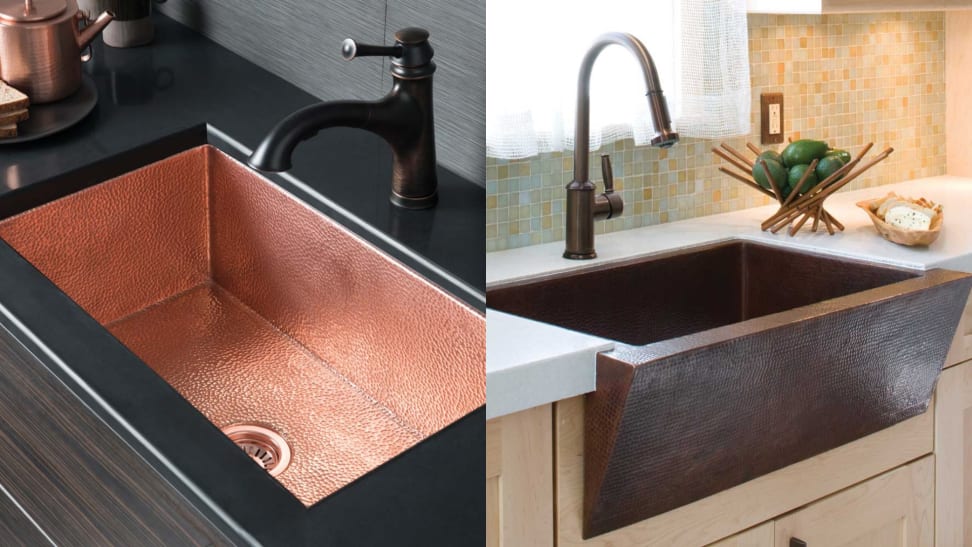 Copper sinks are naturally resistant to bacteria and germs, making them a hygienic choice for the kitchen. In addition, a 16 gauge sink's thicker metal makes it less likely to develop water spots or stains, making it easier to clean and maintain. With just a simple wipe down and occasional polishing, your 16 gauge copper sink will maintain its beautiful shine for years to come.
Copper sinks are naturally resistant to bacteria and germs, making them a hygienic choice for the kitchen. In addition, a 16 gauge sink's thicker metal makes it less likely to develop water spots or stains, making it easier to clean and maintain. With just a simple wipe down and occasional polishing, your 16 gauge copper sink will maintain its beautiful shine for years to come.
Conclusion
 In conclusion, when it comes to choosing a copper kitchen sink, the benefits of a 16 gauge sink outweigh those of a 14 gauge sink. From its strength and durability to its noise-reducing properties and easy maintenance, a 16 gauge copper sink is a wise choice for any kitchen. Consider this option when designing or remodeling your kitchen for a touch of elegance and practicality.
In conclusion, when it comes to choosing a copper kitchen sink, the benefits of a 16 gauge sink outweigh those of a 14 gauge sink. From its strength and durability to its noise-reducing properties and easy maintenance, a 16 gauge copper sink is a wise choice for any kitchen. Consider this option when designing or remodeling your kitchen for a touch of elegance and practicality.
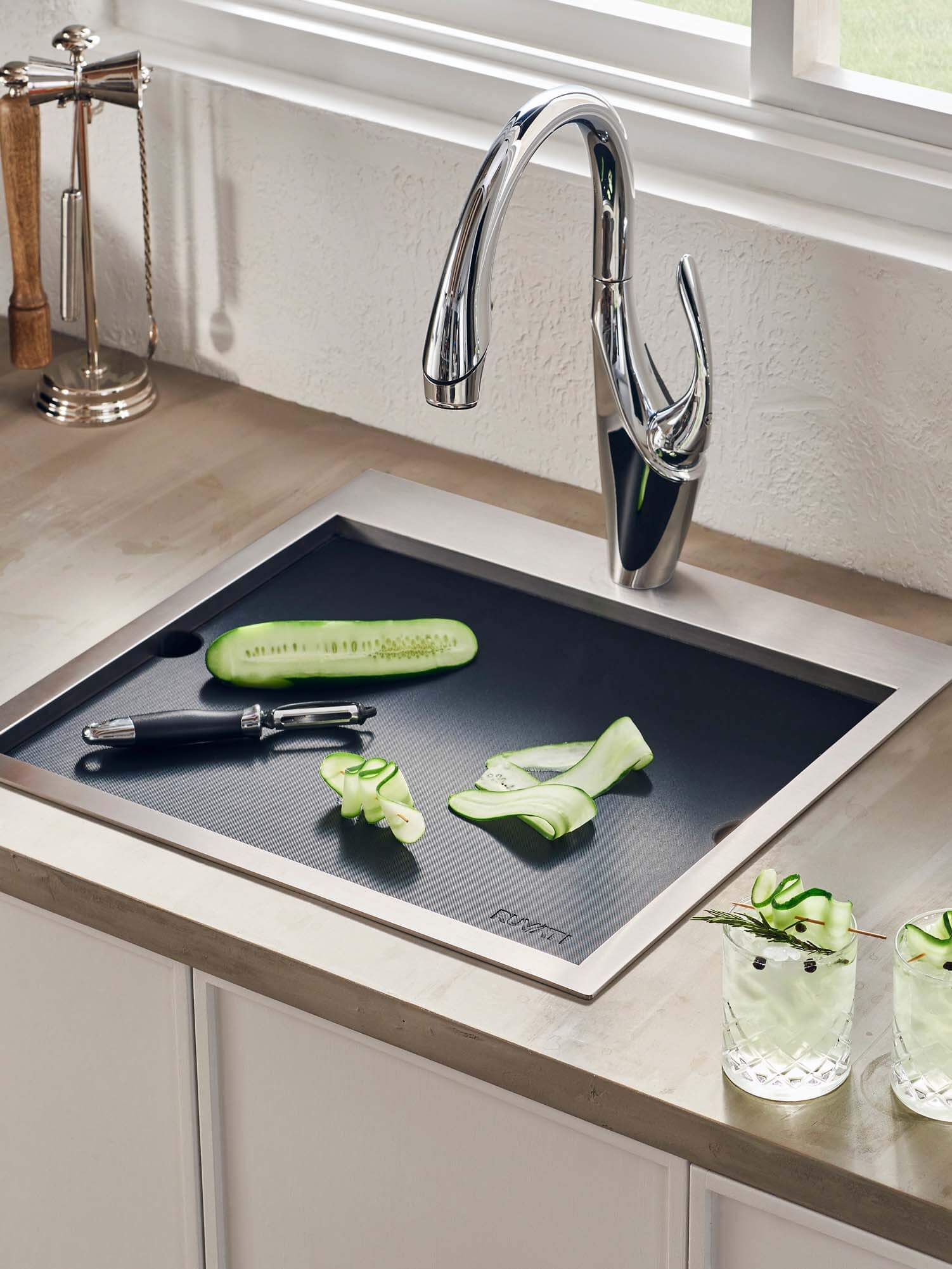




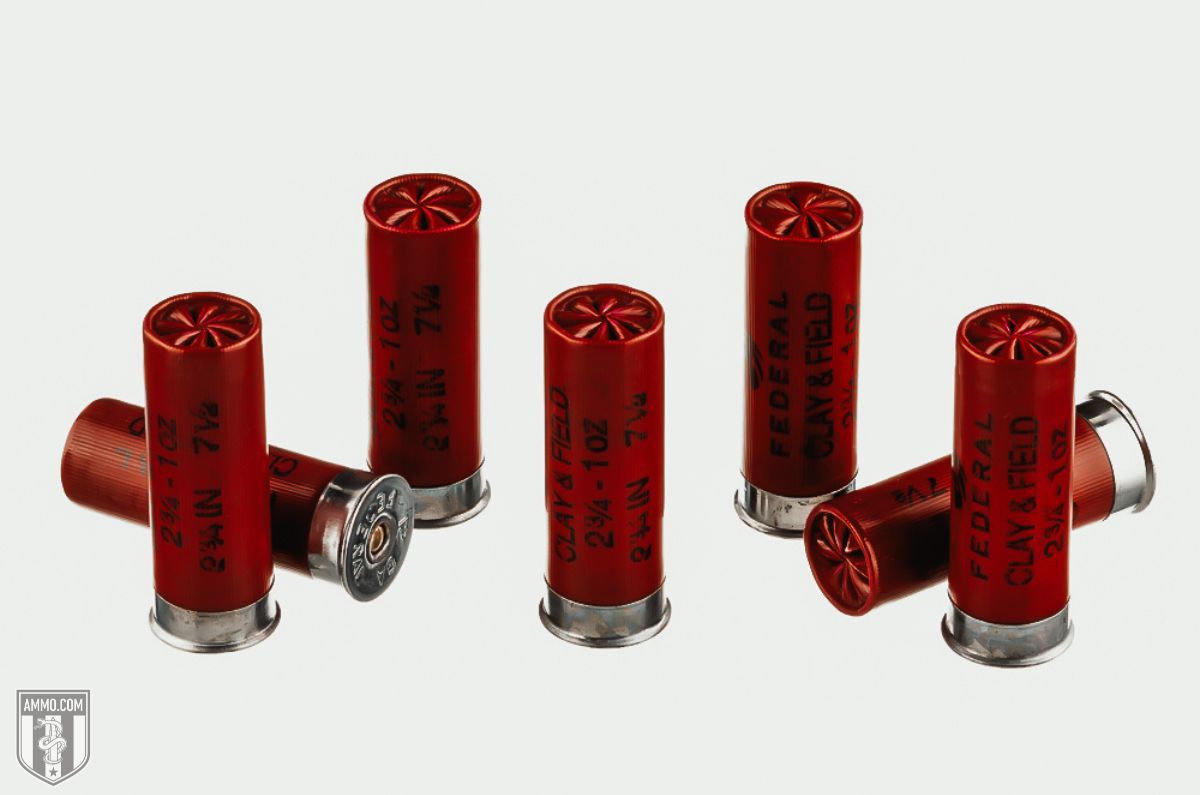


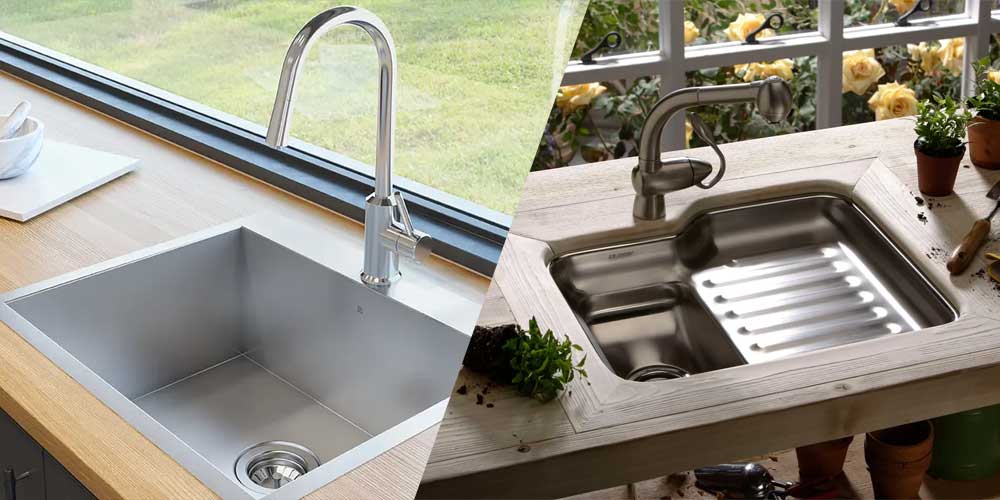
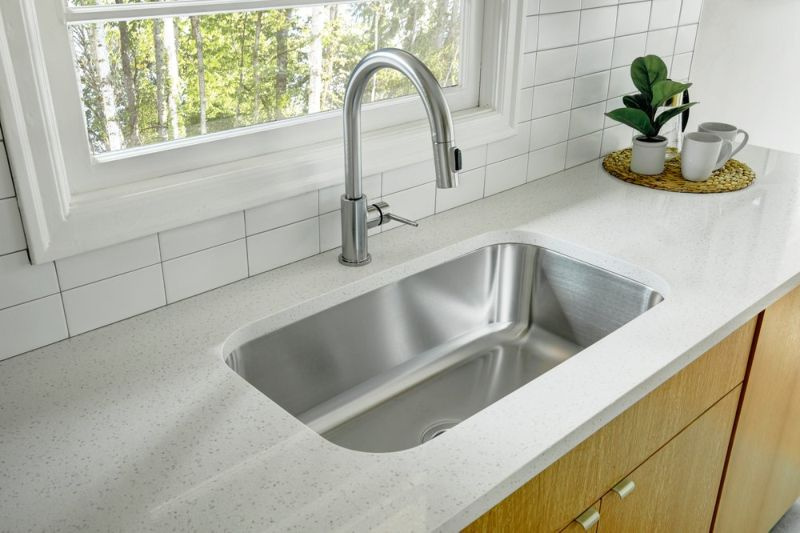

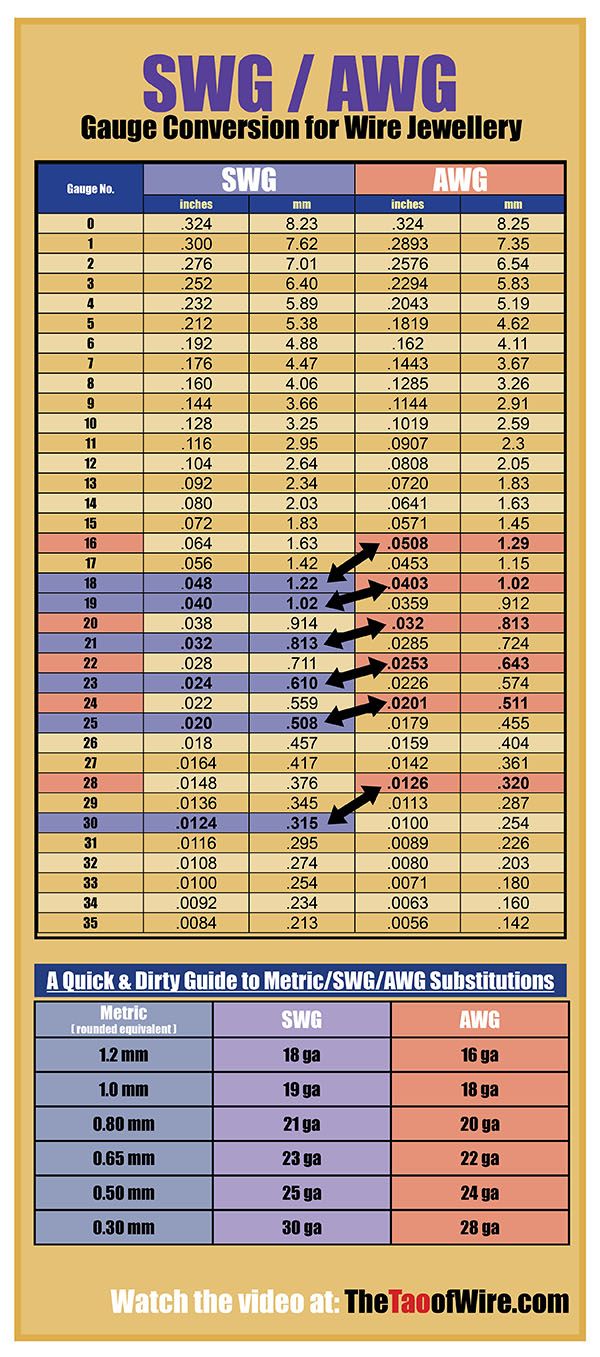
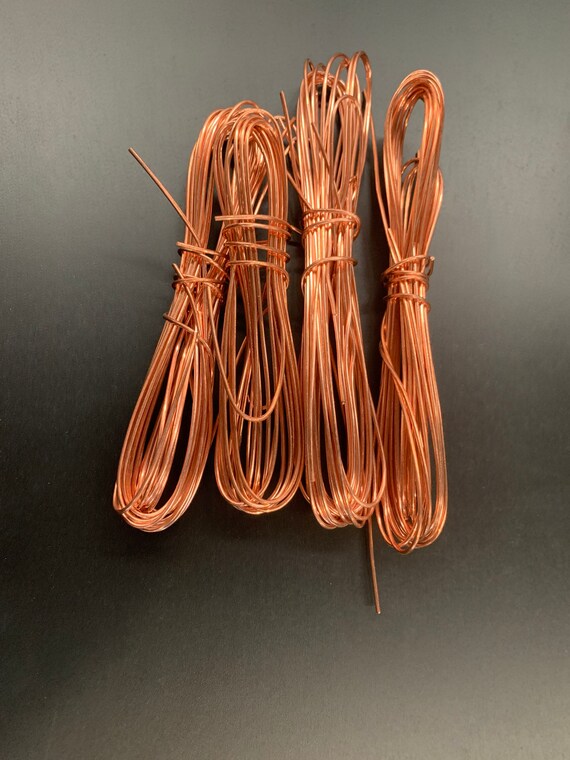
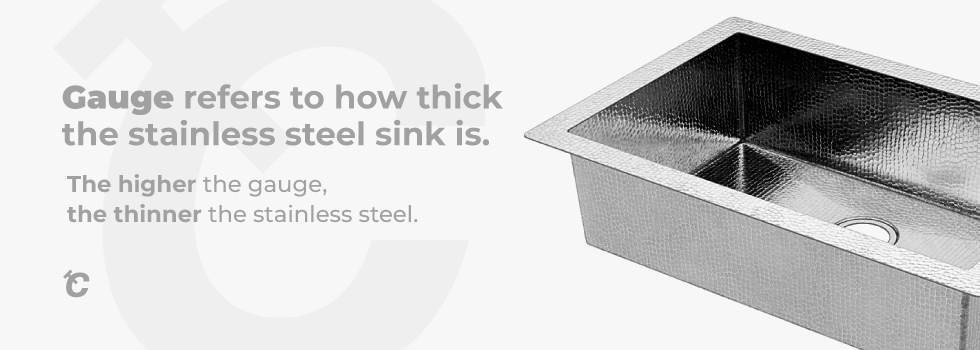




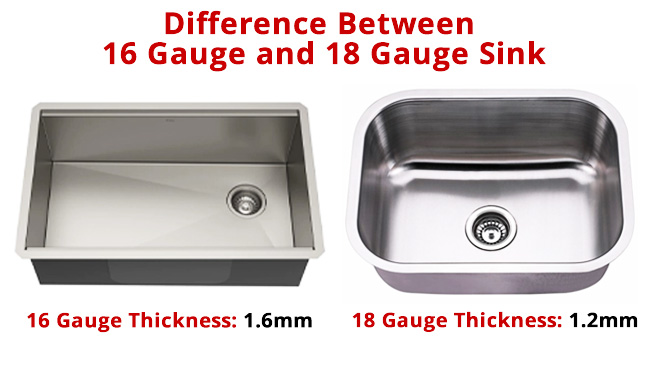












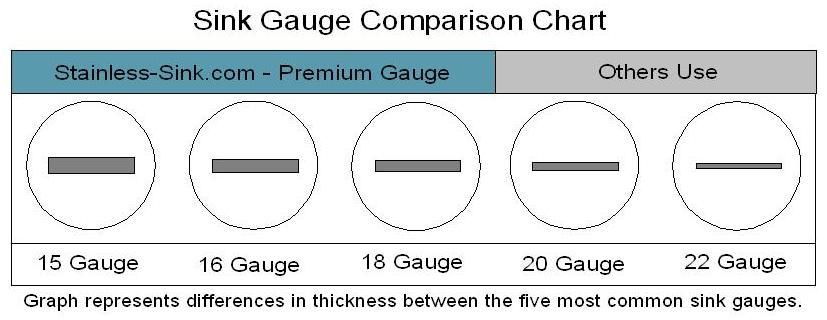








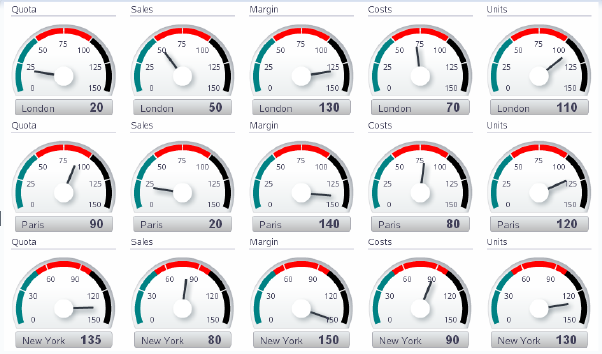


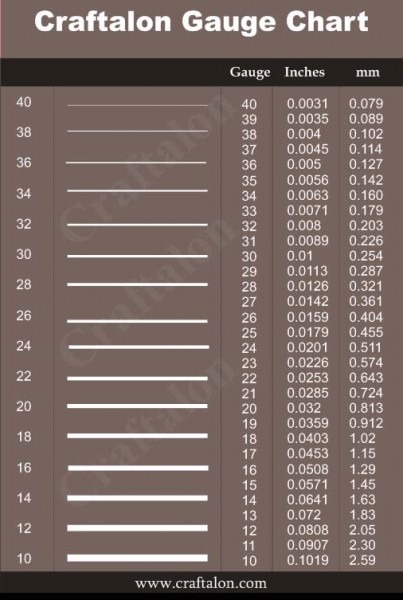


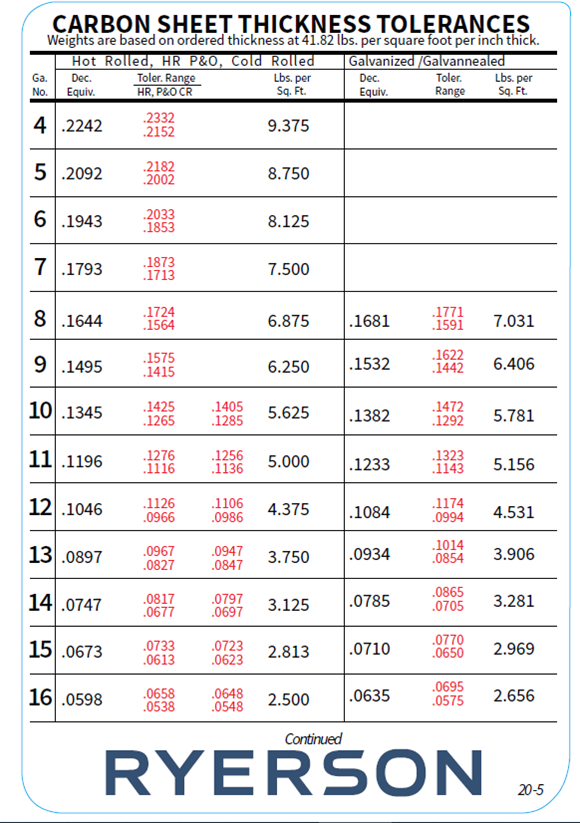
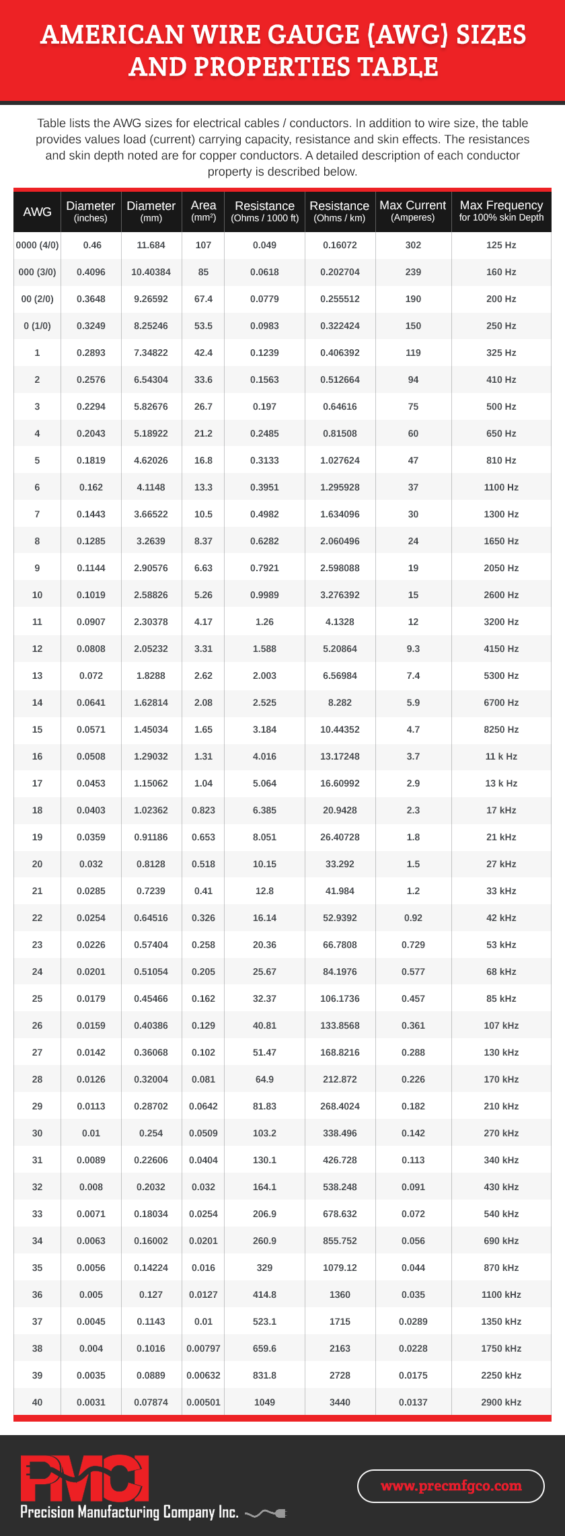






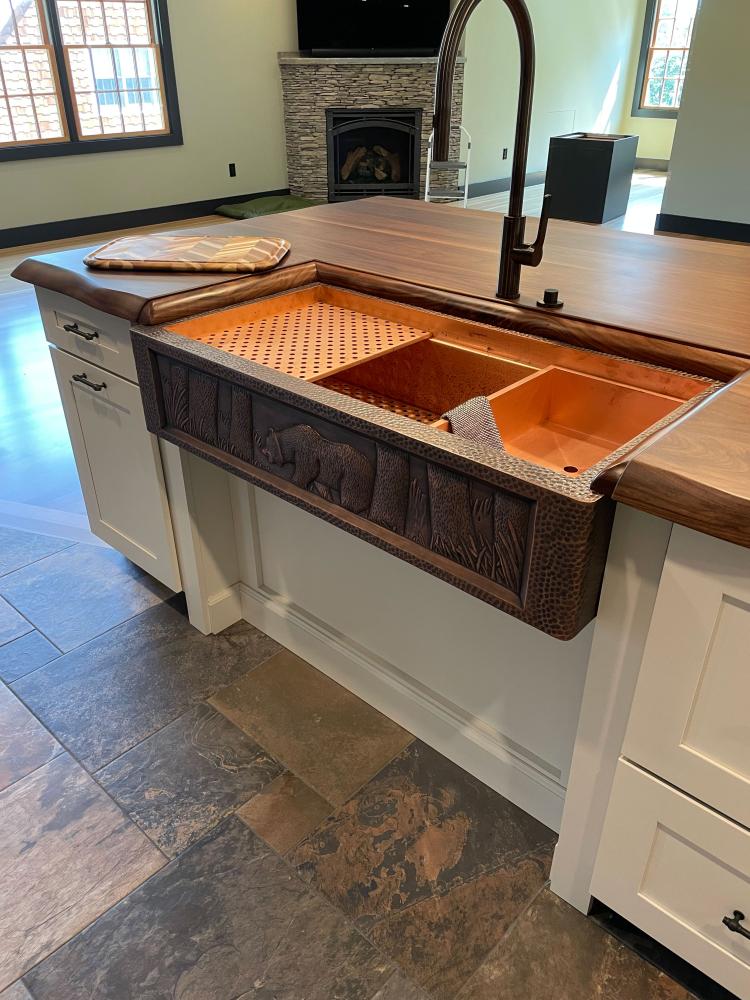





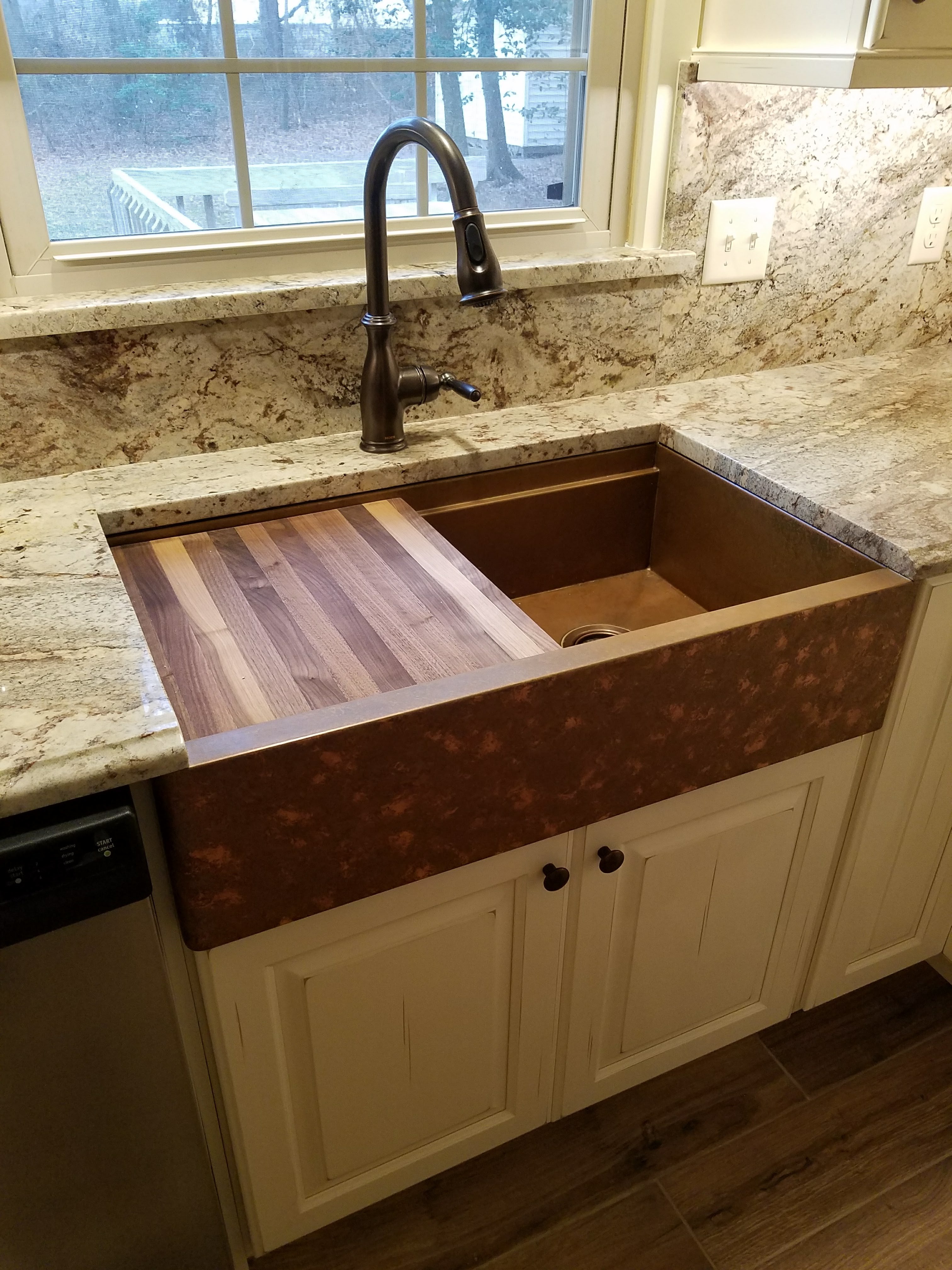
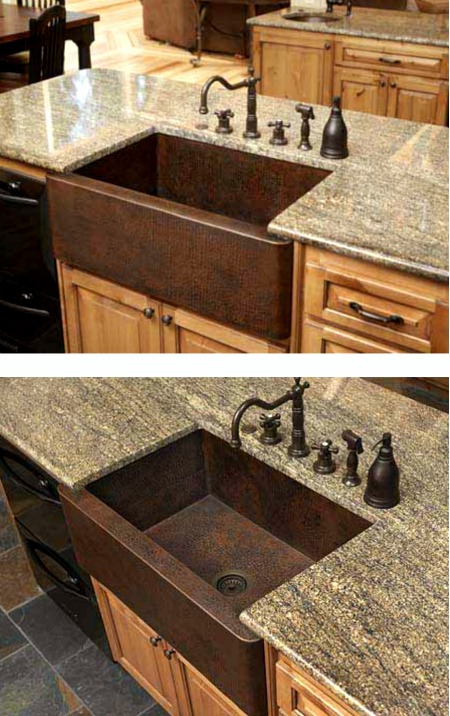











:max_bytes(150000):strip_icc():focal(599x0:601x2)/saferest-full-size-premium-waterproof-mattress-protector-tout-d5425d64543741a4a2965b321fd5ea94.jpg)
